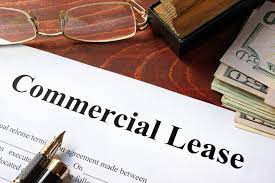There is a lot of talk from investors on property management – who does it, and what it costs. Many realize over time that property management is also a field where you get what you pay for… the better ones will definitely cost more.
So let’s say you have a property management company running all of your investments. You’re done now, right? Time to kick back in Key West for 3 months?
Not quite. We all know that properties are more than just the physical management. If you don’t carefully watch your numbers, rates, returns, and KPIs – your return can plummet. This is where asset management comes into play. They supervise your property manager, but also look for ways to add value in the investment and protect the ongoing investment return.
For example, take property taxes. Local governments are hot to trot on real estate tax increases whenever possible. A good asset manager will watch those numbers, and do what is necessary to keep them low. Let’s say you’re considering renovating some units in a building. Would it be better to only do renovations that don’t require a permit, so the government isn’t alerted? Perhaps the rent return is the same without increasing the “value” on your taxes. Strategic asset managers can think ahead on these types of items.
Key Items to Consider if You’re Doing Your Own Asset Management
1. Maximizing Investment Returns: Asset managers possess the expertise to optimize property performance, ensuring that investors achieve maximum returns on their investments through effective leasing strategies, expense management, and property enhancements.
Think of property managers as “reactive” and asset managers as “proactive” in the role of your property. The asset manager is thinking ahead to protect your income.
2. Risk Mitigation: Asset managers mitigate risks by implementing comprehensive risk management strategies such as property insurance, compliance with regulations, and proactive maintenance protocols, safeguarding investors against potential financial losses.
Eventually, many investors will deal with fires, tenant injuries, accidents, and even death. Getting in front of issues to prevent them will protect all you have worked so hard for.
3. Strategic Decision Making: Asset managers provide valuable market insights and data-driven analysis to inform strategic decision making, enabling investors to capitalize on emerging opportunities and navigate market fluctuations with confidence.
Say the city decides that they want more housing units built, and is open to changing zoning. Making an application to change zoning to a higher density could increase the future value of the site. Being aware of the law changes and having the time to submit for this change is the role an asset manager plays.
4. Operational Efficiency: Asset managers streamline operations, alleviate administrative burdens, and enhance efficiency by looking for ways to make routine items more effective.
Take, for example, CapEx improvements – the asset manager decides to take out the minimal grass at your property, and replace it with artful stone beds. This reduces your overall mowing cost, while also making your property more attractive.
5. Long-Term Wealth Preservation: Through proactive asset management, investors can preserve and enhance the long-term value of their real estate assets, ensuring sustained profitability and financial stability for future generations.
For instance, think about selling a property into an Opportunity Zone fund. This not only provides tax-sheltered growth, but (if structured as a 721 exchange) could avoid long-term capital gains.
Conclusion
Your overall success is fueled by the long-term view of how you oversee your assets and think strategically about them. Make sure you or your asset manager are keeping an ongoing eye on protecting – and building – your wealth through proactive asset management.
NAREIM is the industry association dedicated to the business and organizational strategy of real estate investment management, and a valuable resource to aid in your knowledge on watching over investments.
Sources
https://www.1031gateway.com/1031-exchange-rules/1031-exchange-alternatives/721-exchange-upreit/






